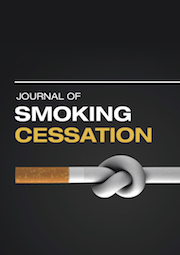No CrossRef data available.
Article contents
A Case Study of a Self-Help Intervention With Telephone Support for a Smoker With Weak Motivation to Quit
Published online by Cambridge University Press: 21 February 2012
Abstract
Smokers who need help to stop smoking cannot always attend clinical treatment sessions, so it is important for other alternatives to be offered. We report a case study of a smoking cessation intervention administered to a 29-year-old male cigarette smoker who had made no previous attempts to quit and who did not want to stop smoking, but who was obliged to because he was about to undergo a surgical intervention. The intervention was a mailed behavioural program combined with telephone support, administered over a six-week period. The subject quit smoking after 4 weeks, and remained abstinent at 3-, 6-, and 12-month follow-ups. At the 12-month follow-up the carbon monoxide in expired air was used to verify his abstinence.
- Type
- Articles
- Information
- Copyright
- Copyright © Cambridge University Press 2007




